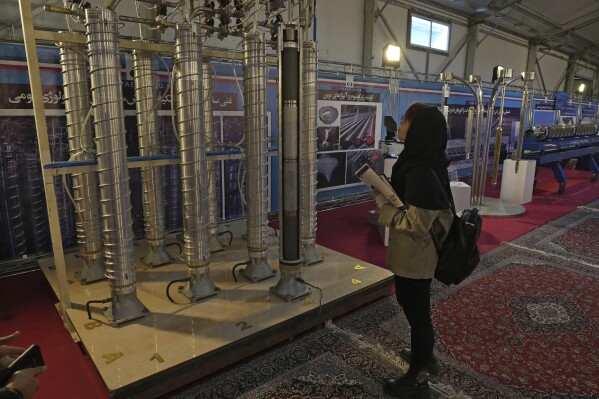Iran's Nuclear Status: No Active Weapons Program, But Uranium Stockpile at Record High
International International NewsPosted by NewAdmin on 2025-03-26 08:45:44 |
Share: Facebook | Twitter | Whatsapp | Linkedin Visits: 65

Iran is not currently pursuing a nuclear weapon, according to Tulsi Gabbard, the US Director of National Intelligence. Speaking at a Senate Intelligence hearing, she stated that the US Intelligence Community continues to assess that Iran is not actively building nuclear weapons. She emphasized that Supreme Leader Ayatollah Ali Khamenei has not authorized a nuclear weapons program since it was suspended in 2003. However, she acknowledged that discussions about nuclearization have increased within the Iranian government.
Despite not actively developing a nuclear weapon, Iran’s uranium stockpile has reached an unprecedented level for a state without nuclear weapons. This development has raised concerns among US officials, as it suggests that Iran is increasing its nuclear capabilities while still operating within the limits of its current policies. The annual threat assessment report from the US intelligence community, published on March 25, highlighted this issue and outlined the broader threats Iran poses to the region and US interests.
The report predicts that Iran will continue to leverage its missile capabilities and expanding nuclear program to strengthen its regional influence and ensure the survival of its regime. It also noted that Iran is using diplomacy to improve its ties with neighboring states and US rivals to counter Western pressure. Additionally, Iran’s ongoing military investments are seen as crucial for confronting perceived threats from adversaries such as Israel and the United States. The assessment also pointed to Iran’s growing willingness to discuss nuclear weapons in public, which has encouraged factions within the Iranian government that support developing such weapons.
In October 2024, US officials reiterated their belief that Iran had not made a decision to build a nuclear weapon, despite facing setbacks such as the killing of Hezbollah leaders by Israel and unsuccessful attempts to attack Israel. However, Iran’s nuclear advancements and its increased stockpile of uranium have raised concerns that it could move closer to weapons-grade material if tensions escalate.
The Iran nuclear deal, formally known as the Joint Comprehensive Plan of Action (JCPOA), was signed in 2015 between Iran and major world powers, including the US, UK, France, Germany, Russia, and China. The agreement aimed to limit Iran’s nuclear program in exchange for sanctions relief. However, the US withdrew from the deal in 2018 under former President Donald Trump, reimposing sanctions on Iran. In response, Iran gradually breached the deal’s restrictions on its nuclear activities. Efforts to revive the agreement under President Joe Biden have stalled due to ongoing regional conflicts and Iran’s continued nuclear advancements. The uncertainty surrounding the JCPOA has added to the growing concerns about Iran’s future nuclear ambitions.
Search
Categories
Recent News
- Andhra Pradesh's Zonal System: A Hurdle in District Formation
- Hyderabad's Traffic Wings Get a Boost with IPS Officer Reshuffle
- Uncovering the Golden Scheme: I-T Raids Expose Bullion Trading Secrets
- Big Tech's Child Safety Crisis: Australia Sounds the Alarm
- Blue Cloud Softech's $150M Edge AI Chip Venture
- Nuclear Diplomacy Revived: US and Iran Resume Talks
- Curiosity Illuminates Mars: Unveiling the Red Planet's Night Secrets
- Telangana's Cybercrime Conclave: AI Takes Centre Stage
Popular News
- Navigating IPO Market Dynamics Amid Volatility and Regulatory Changes
- Massive Worldwide Microsoft Outage Disrupts Multiple Sectors
- Panjapur Bus Stand to Reshape TNSTC Routes
- తెలుగుదేశం పార్టీ - పేదరికాన్ని నిర్మూలించడంలో వాగ్దానం
- Universities Embrace Remote Learning Technologies Amidst Ongoing Pandemic